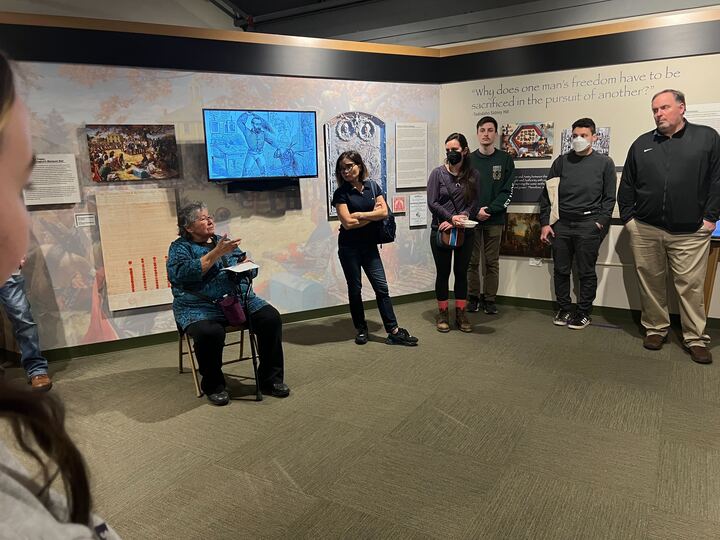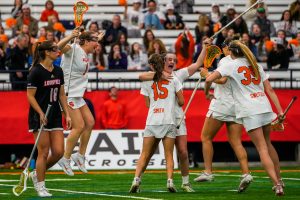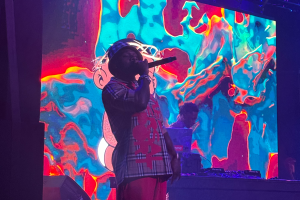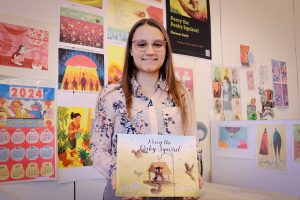“Listen to the Elders” Speaker Series educates on Native culture and customs
"Listen to the Elders" Speaker Series educates on Native culture and custom

The third and final speech and tour of the “Listen to the Elders” Speaker Series occurred Monday night, April 3rd, at the Skä•noñh Center and featured Turtle Clan Mother Whatwehni:neh, Freida Jacques.
This series was created to teach attendees about the Haudenosaunee Confederacy, Onondaga Nation, and their culture. The series was open to students, faculty, staff and alumni, with over 30 people attending the final event.
The night started with a tasting of some traditional dishes in the Haudenosaunee culture. Food consisted of fry bread, corn soup, a vegetarian soup that included the three sisters—corn, beans and squash—as well as a buffalo soup with meat from their herd. To drink, they served sassafras tea to clean the blood and a strawberry drink because strawberries are the leader of the fruits and part of their medicine.
They explained their cooking methods, including how ashes are an important part of how they cook certain foods, and how they need to have good spirits and energy when they prepare the food so that the good energy goes into the food.
“I’m really excited for the event,” said Starlyn Terry, who is a freshman at Syracuse. “I love how they give us the cultural food because I think it’s a good way to immerse us in the experience.”
Following the tasting, there was a speech of thankfulness that allowed for reflection on the nature that allows us to survive and feed.
“So you slowly are changed as you go along,” said Jacques. “You’re feeling quite inspired and thankful for all these parts of creation. The creators set it up the way it is and we’re really quite fortunate because what do humans do that the earth can’t do without us?”
Freida Jacques, who has served the Turtle Clan for over 40 years and worked as a Haudenosaunee Cultural Liaison within education, taught the crowd about the history and stories of her people, beginning with the creation stories and ending with religion and the white man’s impact on them.
“I’m here for a class, but I’m honestly really excited to hear what they’ll teach us,” said Terry. “It’s important for Syracuse to teach us because we’re on their land.”
Many students and adults at the event felt the same, asking questions and exploring the extensive exhibits and displays around the center.
“This idea about having respect for us and having value for us and seeing us as real human beings is really something we do need to work at because that would not be happening if they could view that person as themselves,” said Jacques.
Following Jacques’s speech, she took attendees on a tour of the center herself and went into a more thorough explanation of how life works in their society.
One difference between their culture and American society is how valued women are and how they are the leaders of their clan, while men are meant to marry into their wife’s clan and listen to the clan mother on all matters, including who will be the next chief.
Seeing differences like these helped highlight how important it is for people to learn about and remember cultures that are different from theirs, especially when it comes to groups that have been negatively impacted by their ancestors.
“I think that’s what’s next, let’s look at what do we do about all of this damage that’s still happening,” said Jacques in the final minutes of her speech. “What are we going to do about what we set in motion?”





